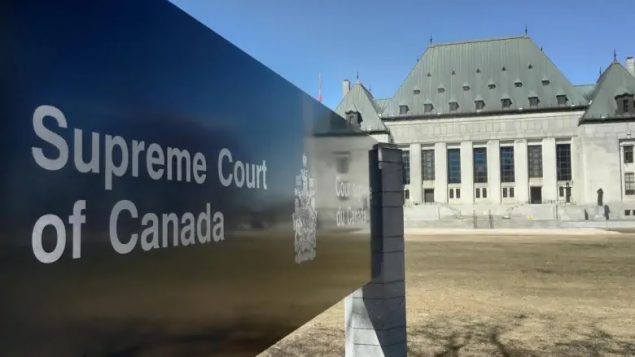After a long delay due to the pandemic, provincial challenges to the federal government’s imposed carbon tax will begin today in Canada’s highest court, the Supreme Court of Canada (SCC).
As part of an environmental effort to slow global warming resulting from carbon emissions (CO2) and fossil fuel burning, the Liberal government imposed a national carbon tax on those provinces which did not institute their own tax or equivalent carbon reduction policy. It passed the Greenhouse Gas Pollution Pricing Act in June 2018. It established a nationwide minimum price on carbon pollution, starting at $10 a tonne in 2019 with step ups each year to reach $50 a tonne in 2022.
Although they get a fuel tax exemption for their own equipment, ranchers and farmers, especially grain farmers, say the tax is a severe financial burden. Most farmers oppose the tax, especially grain farmers who need substantial quantities of propane to dry their crops in addition to the tax having increased costs for most of their supplies, and for transportation. This added financial burden cannot be passed on as they have no control over the prices they receive for crops or animals which are set by the commodity markets.

Ontario farmer Markus Haerle said his propane bill jumped from $8,500 to $17,000 over the last year and he’s worried about the future viability of the family farm ( Olivia Stefanovich-CBC))
Three provinces, Saskatchewan, Alberta, and Ontario, challenged the authority and constitutionality of the federal government to impose such a tax on them. The provinces say their own climate policies are suited to their situations and that they have jurisdiction over provincial taxation and natural resources.
The federal government argues it has the authority to address issues that are national in scope beyond the boundaries and authority of a provincial government.
The case involving constitutional authority presents new challenges as no-one imagined such things as greenhouse gas emissions or climate change when the Constitution was written in 1867.
There will be two days of hearings with seven provinces expected to make submissions related to the issue, along with several other intervenors including the Assembly of First Nations, environmental groups, and provincial utilities in addition to to the federal government’s own lawyers.
Appeal Courts in Ontario and Saskatchewan had previously ruled in favour of the federal government but in Alberta the court ruled the tax unconstitutional.
The SCC will hear the challenges starting today in Ottawa. Some legal experts suggest the federal government has a good case, but it is not ironclad.
In a last minute move the federal government yesterday approved industrial carbon tax programmes of Ontario and New Brunswick, the latter province having initially also opposed the federal tax.
A loss at the Supreme Court would severely hurt the Liberal government as the carbon tax is one of the main pillars of their policy to meet greenhouse gas reduction targets. A win would mean there would be no change in the situation if the Liberal government remains in power.
The SCC decision could take months, but in the meantime the issue of the Liberal government remaining in power could be at stake. The Liberal government prepares its throne speech tomorrow which will be voted on by Members of Parliament in what is always seen as a vote of confidence or non-confidence in the government. A vote of non-confidence will result in the calling of a federal election.
Additional information – sources
- CBC: O Stefanovich: Sep 22/20: Federal government’s climate policy hangs in the balance as Supreme Court considers carbon tax
- Greenhouse Gas Pollution Pricing Act
- Canadian Press (Global): M Rabson: Sep 21/20: Supreme Court set to hear provinces’ appeals over Trudeau’s carbon tax
- Ontario- protecting our environment
- Discover Weyburn (Sask): S Wilson: Sep 21/20: Top court to hear provinces’ carbon tax challenge this week
- CBC: Sep 12/20: After pandemic delay, Supreme Court to hear Sask., Ontario carbon tax arguments this month







For reasons beyond our control, and for an undetermined period of time, our comment section is now closed. However, our social networks remain open to your contributions.